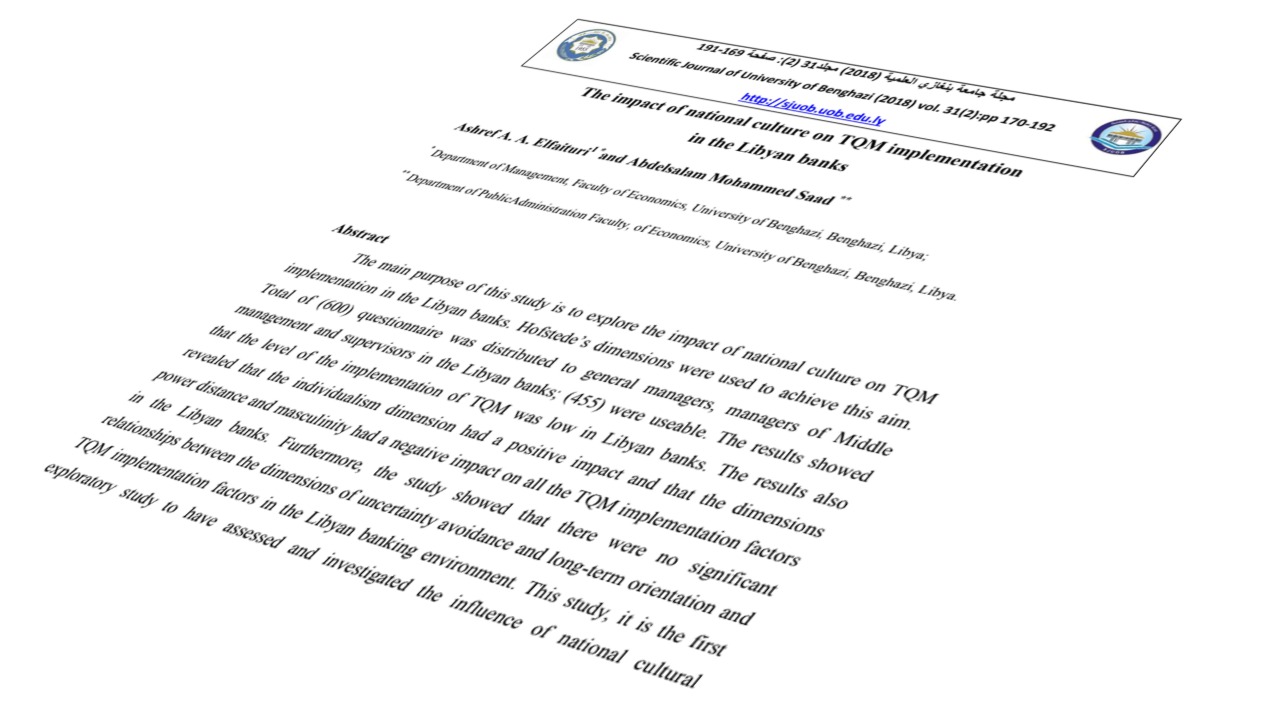The impact of national culture on TQM implementation in the Libyan banks
DOI:
https://doi.org/10.37376/sjuob.v31i2.682Keywords:
Total quality management, national culture, Developing countries, LibyaAbstract
The main purpose of this study is to explore the impact of national culture on TQM implementation in the Libyan banks. Hofstede’s dimensions were used to achieve this aim. Total of (600) questionnaire was distributed to general managers, managers of Middle management and supervisors in the Libyan banks; (455) were useable. The results showed that the level of the implementation of TQM was low in Libyan banks. The results also revealed that the individualism dimension had a positive impact and that the dimensions power distance and masculinity had a negative impact on all the TQM implementation factors in the Libyan banks. Furthermore, the study showed that there were no significant relationships between the dimensions of uncertainty avoidance and long-term orientation and TQM implementation factors in the Libyan banking environment. This study, it is the first exploratory study to have assessed and investigated the influence of national cultural dimensions on TQM implementation in Libya. In addition, the study also provided some recommendations that might help them to improve services quality level and performance in the Libyan banks.
Downloads

Downloads
Published
How to Cite
Issue
Section
License

This work is licensed under a Creative Commons Attribution-NonCommercial-NoDerivatives 4.0 International License.


















